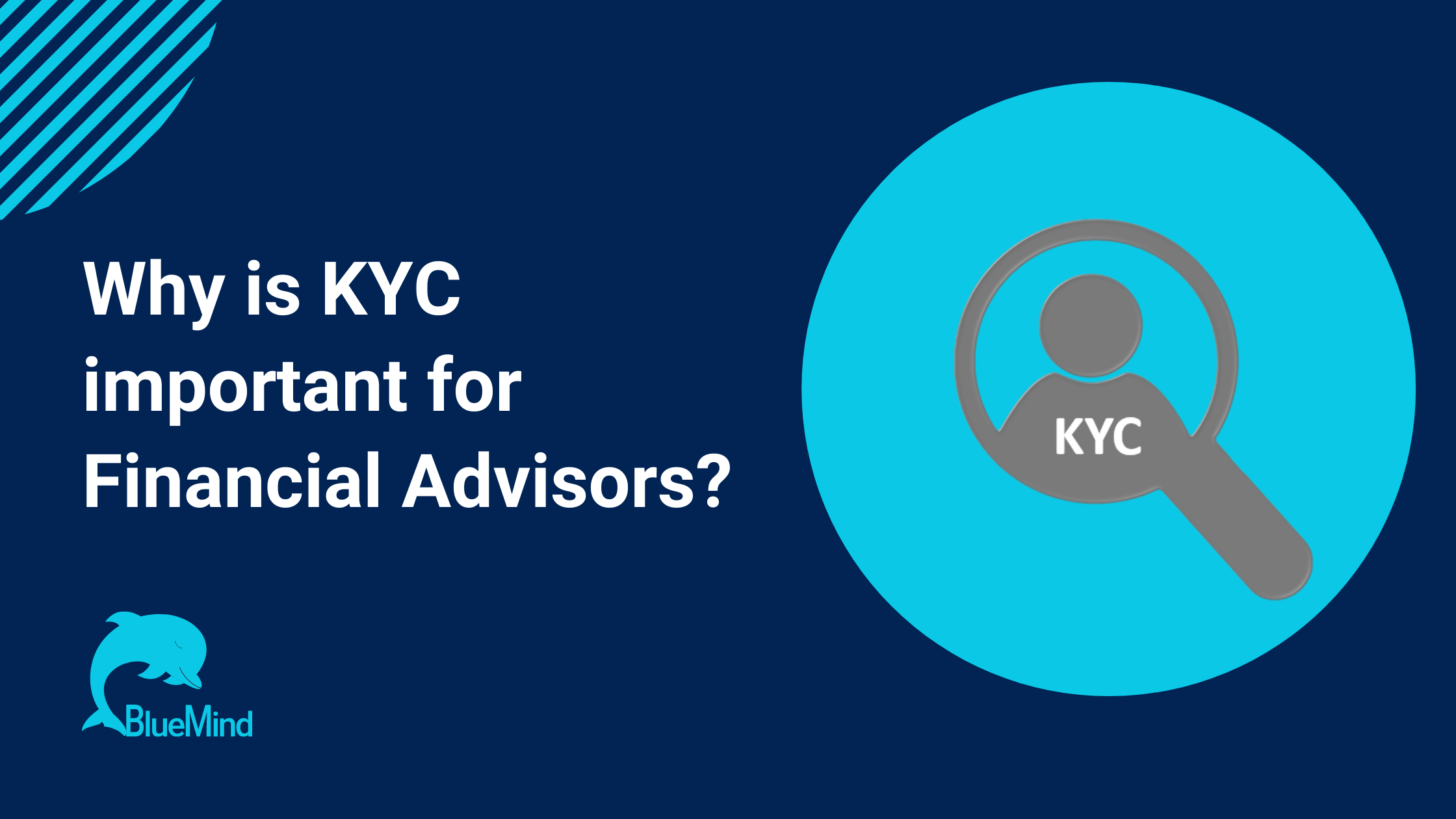How to become a Successful Financial Advisor - Part 1
How to become a Successful Advisor
Robert is a 55-year-old senior manager at an aviation firm. He possesses enough wealth for his later years to come, but he doesn’t know what to do with it. More importantly, he doesn’t know how to plan his retirement years, or protect, sustain and grow his wealth for a rewarding retired life.
He comes across a friend at a wedding anniversary, where Robert is told about financial advisors and how they can be of great help. Now, Robert also wishes to seek the assistance of an advisor. However, there’s a fear somewhere in his heart that what if the advisor he hires may not be able to take care of his wealth management and retirement plan the way he expects.
Skills and education are necessities in every profession in the world. However, there is a whole set of other qualities that sets you apart as a financial advisor who clients seek and trust.
We share some of the secrets of becoming the most successful financial advisor in the series of blogs, this being part 1.

Be Dedicated and Passionate
People take money seriously than any other thing. They have invested their time and energy and who knows how many stressful nights they have gone through in their life to make their dreams come true.
Therefore, expect your clients to expect a financial advisor who is passionate, and who shows interest and responsibility in what he does. Show your clients your passion for financial advisory by telling them what new is happening in the industry and how it aligns to their financial goals.
Listen to your clients and get to know more about them. Before meeting your clients, get a picture of their life by researching on them. Fortunately, social media has made research on target-audience easy in today’s era.
Related: Top Productivity Hacks for Financial Advisors.
Have an Analytical Approach
Financial advisors cover a multitude of specialties including but not limited to retirement planning, cashflow planning, investment planning, or insurance planning. For a professional planner to be successful, it is imperative that they approach matters in an analytical manner.
Take, for instance, investment planning that is mainly based on achieving your clients goals while managing the risk and return spectrum. Be analytical, proactive and flexible. Create an investment portfolio for your client, keeping in mind future risks such as change in wealth, or possible fluctuation in stock and fund prices.
The portfolio should be flexible enough to cater to the fluctuation, or the reallocation of assets. There are different analytical strategies you can use such as strategic asset allocation, or standard deviation.

Delegate, Delegate, Delegate
Managing few clients in a day isn’t a big deal for financial advisors. However, things can get quite messy when you have over a dozen of clients or too many leads. You can’t expect to calmly focus on creating a risk management strategy for a client when your mind is occupied with meeting a prospects and other administrative works.
You need to understand where you need to focus, and what is your core strength in your business. Then you start delegating excessive work and work less need your expertise. You can either hire a team, work partnership with other junior advisors or just outsource skilled people. Outsourcing or delegating tasks, will be hard in the beginning and stressful, however once you get the right people you will experience less stress and increase in your business revenue. You will be able to balance between high priority and mid priority clients.
You will have enough time to grow your network by meeting new people. In fact, you will have more time on your hand to upgrade your skills and spend quality time with your family or yourself.

Moreover, Apple Siri and Google Assistant are two other AI tools that are installed in your smart device and perform multiple functions on your phone. If you whisper Okay Google to any latest Android device, you will see a Google window popping up on the screen asking how can it help you. You can ask it to perform various functions like playing a song, perform a Google search, or even to tell you a joke.
Technology to help your business
In today’s world, if an advisor does not use the technology it will be hard to perform daily operations. Technology replaces the manual and repetitive work and will help advisors save time for client relationship. Advisors need to use the right technology tools and systems for their business advantage.
For example, BlueMind, a financial advisor smart digital office, is a comprehensive CRM tool developed by financial planners and experience advisors, focusing on the advisor’s business needs. The exclusive features are automated compliance and AI-powered recommendation that not only protect your business, but also grow it to the next level.

Auto-Generate Referrals
You can significantly cut your client cost of acquisition when you start generating referrals. However, you can’t make others talk about you unless you start the deed first.
In other words, create a reputation of being known in the industry as an expert financial advisor. You can do that by continuously marketing yourself and sharing your experience through personal blogs.
Once you start sharing your knowledge and problem-solving skills or methodologies with the world, your words will eventually reach to prospects looking for experts who can meet their needs. Moreover, your regular clients will instinctively refer their friends to you who are looking for financial advisors.

Start integrating these qualities in your life and open door to more new opportunities. Your clients will see you as someone who can relate with their problems and propose them solutions that they can safely trust. And, when they see how much efforts you have put into making their dreams come true, eventually they will refer others to you without a second thought.
Stay tuned and visit us again for the part 2 of the successful advisor series.




